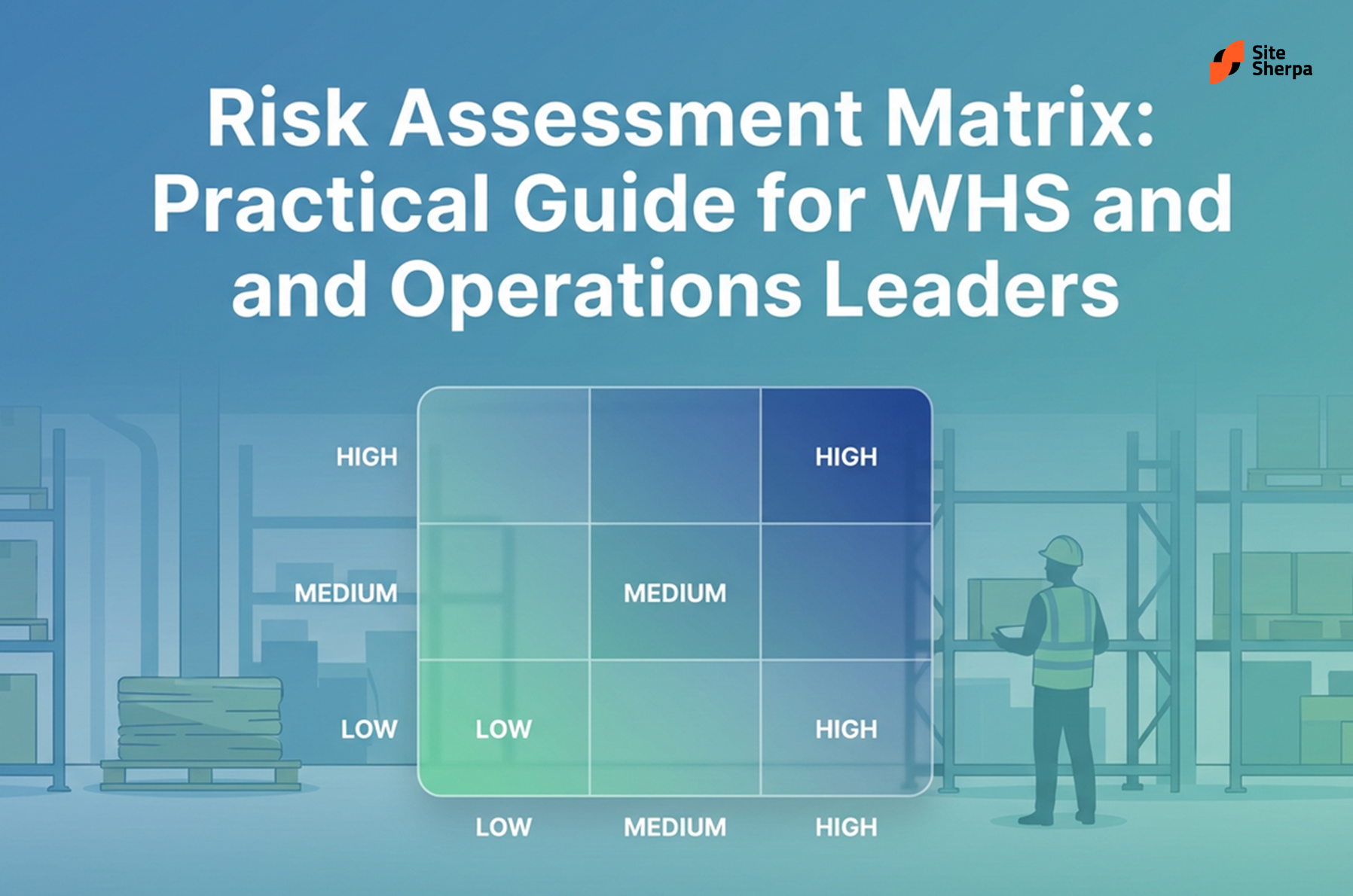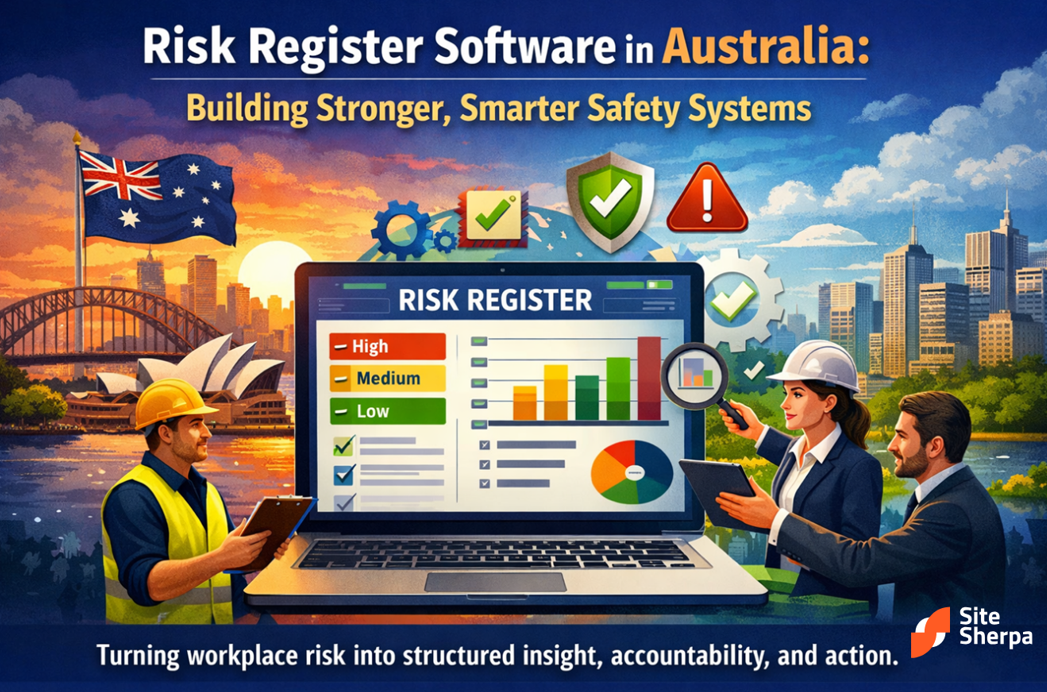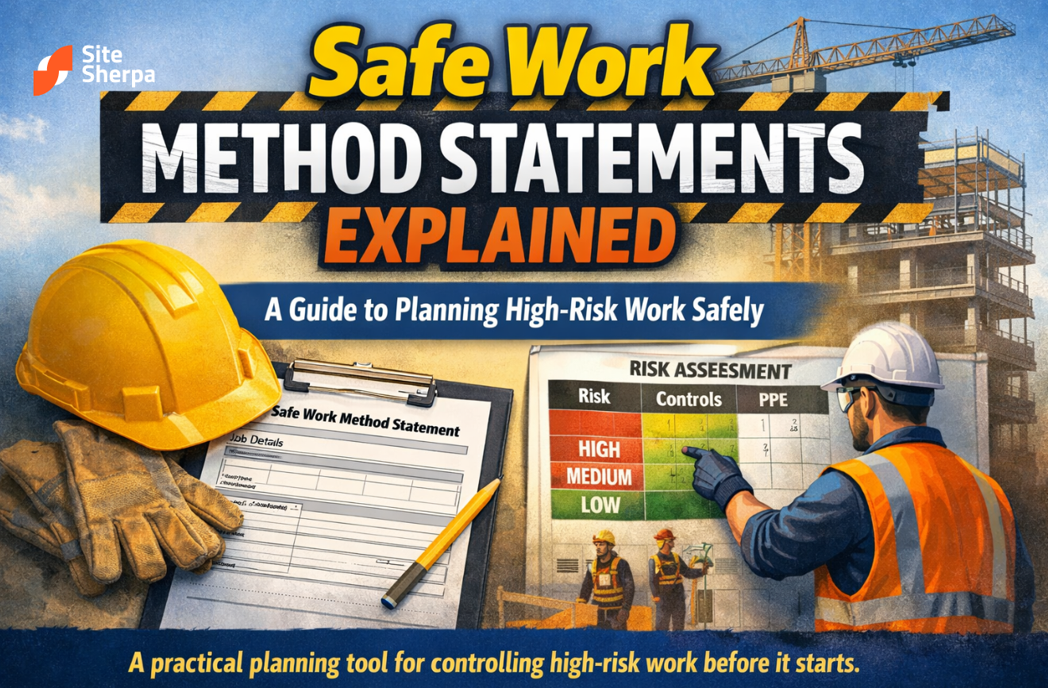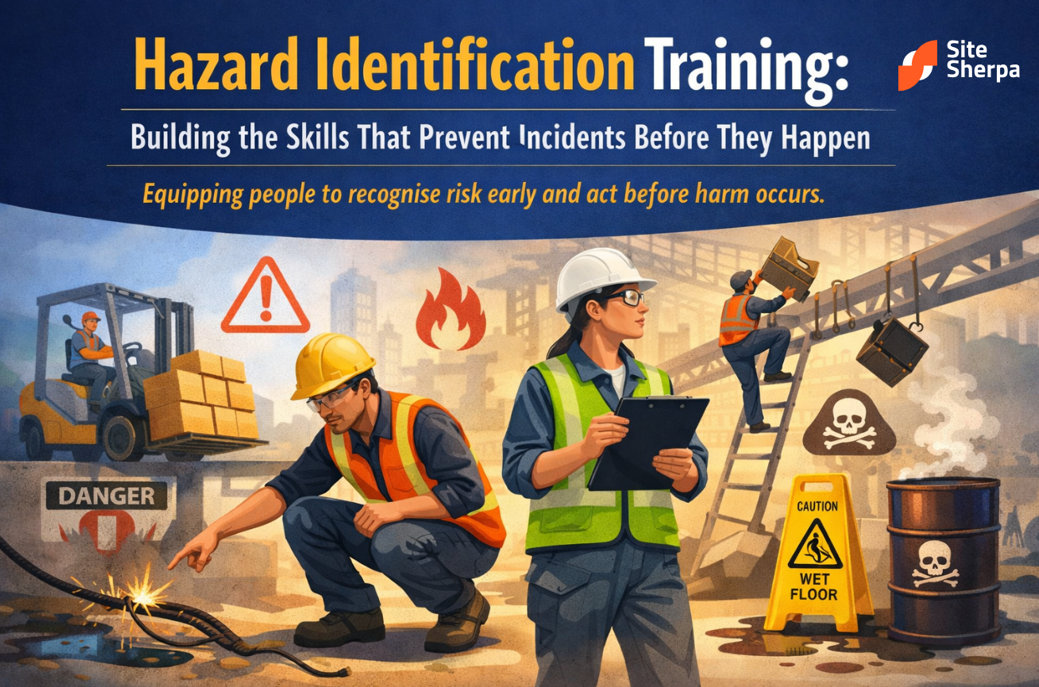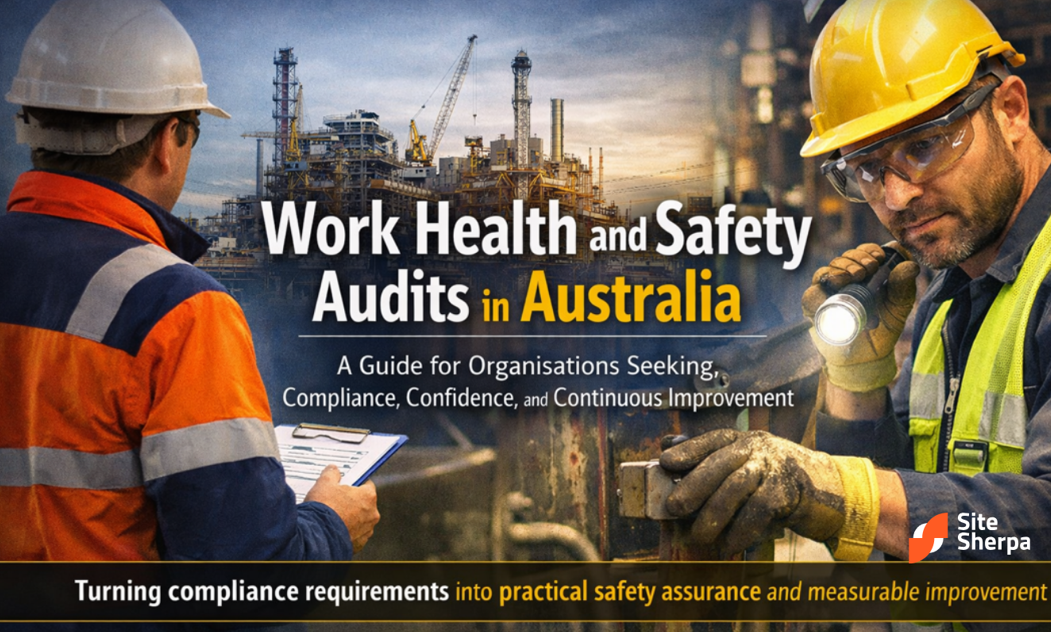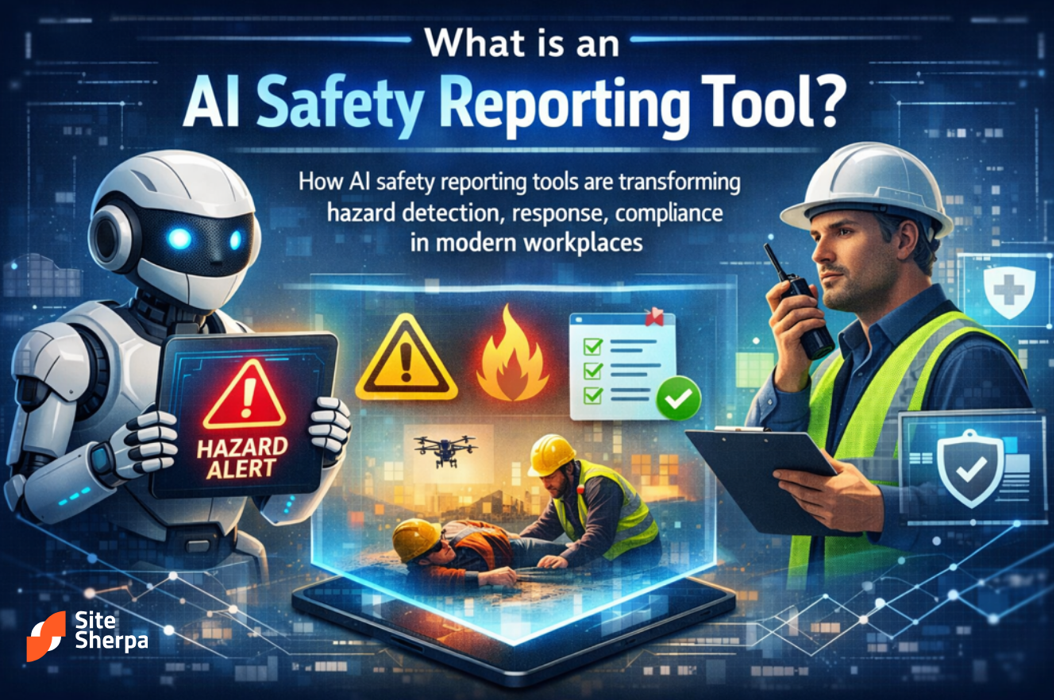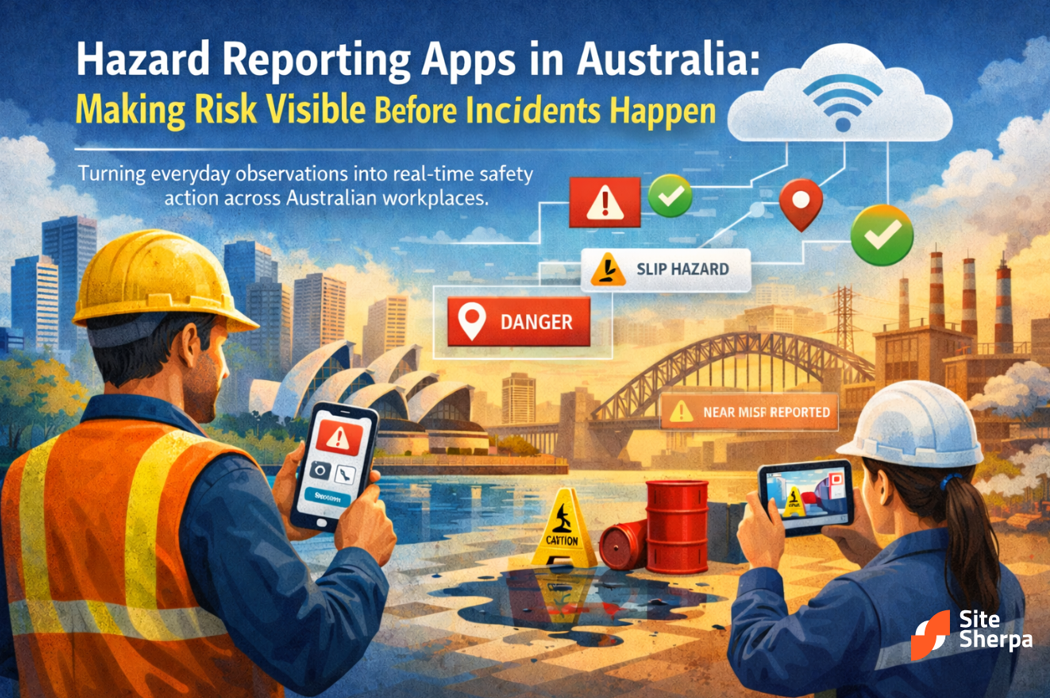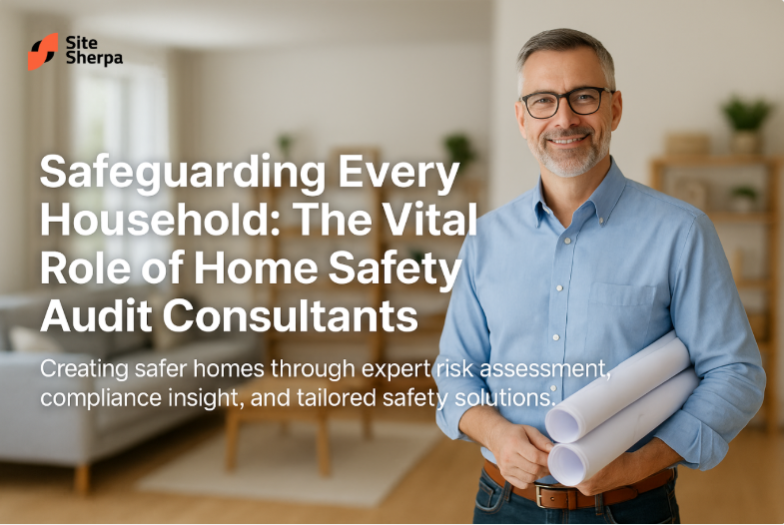Building Stronger Teams: The Crucial Role of a Psychological Safety Consultant
Creating workplaces where people feel heard, valued, and safe to perform at their best
In today’s complex and fast-paced world of work, success is not just determined by innovation, technology, or efficiency. It increasingly hinges far more on human trust. Teams that trust one another communicate more openly, collaborate more effectively, and adapt more readily to change. The foundation of that trust is psychological safety: a shared belief that it is safe to speak up, make mistakes, and challenge ideas without fear of embarrassment or retribution.
Organisations that master psychological safety outperform their peers. Studies from Google’s Project Aristotle, Deloitte, and Harvard Business School have consistently shown that teams with strong psychological safety achieve higher engagement, creativity, and retention. Yet, fostering such an environment requires more than goodwill or policy it demands structured, evidence-based intervention led by a specialist: the psychological safety consultant.
What Is Psychological Safety?
Psychological safety was first defined by Harvard Professor Amy Edmondson as “a shared belief held by members of a team that the team is safe for interpersonal risk taking.” In practical terms, it means employees feel comfortable being themselves. They can ask questions, raise concerns, admit mistakes, or propose unconventional ideas without fearing ridicule or punishment.
It is not about lowering standards or avoiding accountability; rather, it is about creating the conditions where accountability thrives. When people trust that they will not be blamed for honest mistakes, they take ownership, innovate, and contribute meaningfully to organisational learning.
Why Psychological Safety Matters

1. Improved Team Performance
When individuals feel safe to share their ideas and feedback, they contribute their full intellectual capacity. Teams collaborate more effectively, problem-solve faster, and make better decisions based on diverse perspectives.
2. Higher Employee Engagement
A psychologically safe workplace encourages participation and emotional connection. Employees who feel respected and valued are more motivated, productive, and loyal.
3. Enhanced Innovation
Innovation depends on experimentation and experimentation involves risk. Without psychological safety, teams are unlikely to challenge existing assumptions or propose new solutions.
4. Better Mental Health and Wellbeing
Workplaces with strong psychological safety reduce stress, anxiety, and burnout. Employees are more likely to seek help when struggling and less likely to leave due to toxic dynamics.
5. Fewer Errors and Incidents
In industries like healthcare, rail, aviation, and construction, encouraging staff to speak up about potential risks prevents accidents and saves lives. Silence, on the other hand, can lead to catastrophic outcomes.
The Role of a Psychological Safety Consultant
A psychological safety consultant is a professional who specialises in diagnosing, developing, and embedding psychologically safe practices within organisations. Their work bridges leadership development, organisational psychology, and workplace culture transformation.
These consultants guide companies through structured assessments, workshops, and coaching programmes designed to improve trust, communication, and accountability at every level of the business.
Their expertise lies in understanding how people interact, what drives team behaviour, and how organisational systems can either nurture or inhibit openness.
Key Responsibilities of a Psychological Safety Consultant
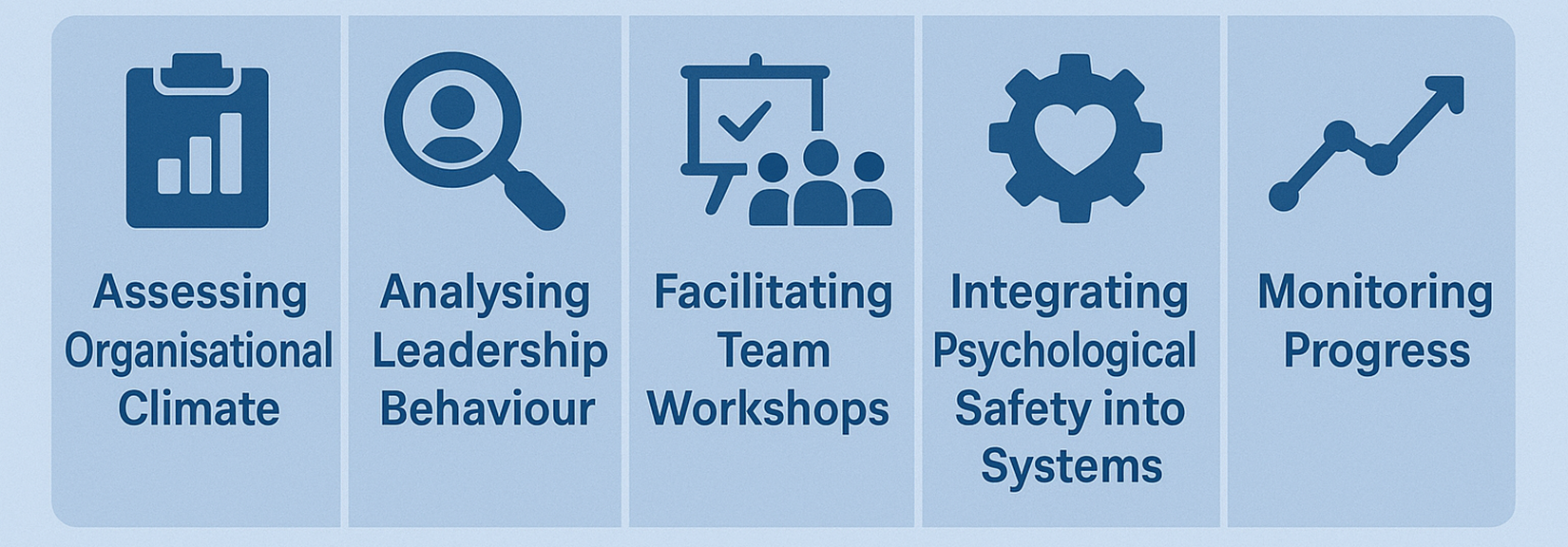
1. Assessing Organisational Climate
Consultants begin by measuring the current state of psychological safety across teams. This may involve employee surveys, focus groups, and one-on-one interviews. Using evidence-based frameworks such as the Edmondson Psychological Safety Index or customised assessment tools, they identify where trust is strong and where fear or silence persists.
2. Analysing Leadership Behaviour
Leaders play a pivotal role in shaping psychological safety. Consultants observe meetings, review management communication styles, and provide feedback on leadership practices that may unintentionally suppress openness such as interrupting employees, reacting defensively to feedback, or rewarding conformity.
3. Facilitating Team Workshops
Through interactive workshops, the consultant helps teams establish norms for communication, feedback, and conflict resolution. These sessions create a shared language and understanding around psychological safety and accountability.
4. Integrating Psychological Safety into Systems
True transformation goes beyond training sessions. Consultants ensure that psychological safety principles are built into recruitment, onboarding, performance reviews, and feedback mechanisms.
5. Monitoring Progress
Ongoing measurement and review are essential. Consultants track changes in team sentiment, communication patterns, and performance metrics to ensure sustained improvement.
Common Barriers to Psychological Safety
Despite its clear benefits, many organisations struggle to build or maintain psychological safety.
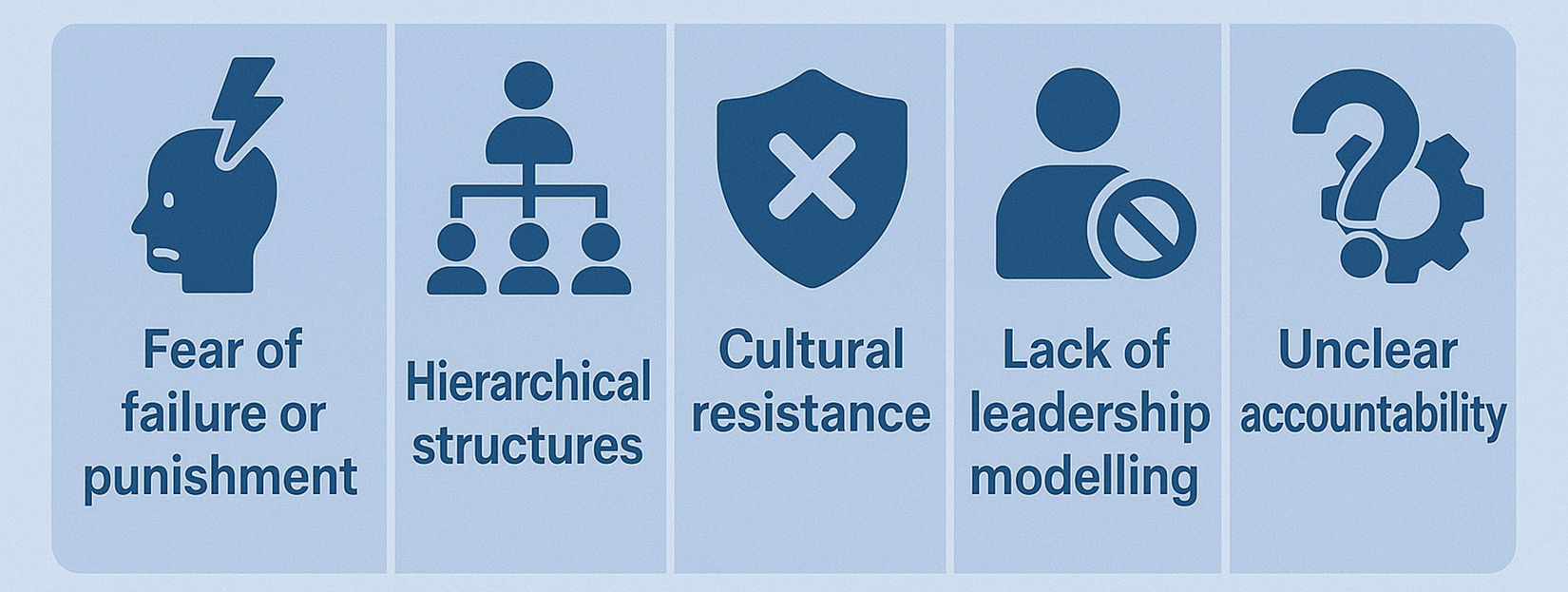
Common barriers include:
- Fear of failure or punishment – Employees worry that mistakes will damage their careers.
- Hierarchical structures – Rigid authority discourages open dialogue.
- Cultural resistance – Some industries equate silence with professionalism or strength.
- Lack of leadership modelling – When leaders fail to demonstrate vulnerability, teams follow suit.
- Unclear accountability – Without role clarity, speaking up can feel risky.
A skilled psychological safety consultant helps organisations confront these barriers directly, offering practical tools to break patterns of fear and foster constructive communication.
The Connection Between Psychological Safety and Leadership
Leaders set the emotional tone of a team. Whether consciously or not, they signal what behaviours are rewarded and which are discouraged. A psychologically safe leader demonstrates curiosity, empathy, and openness. They invite diverse opinions, respond calmly to bad news, and recognise courage when people speak up.
Consultants often coach leaders to develop:
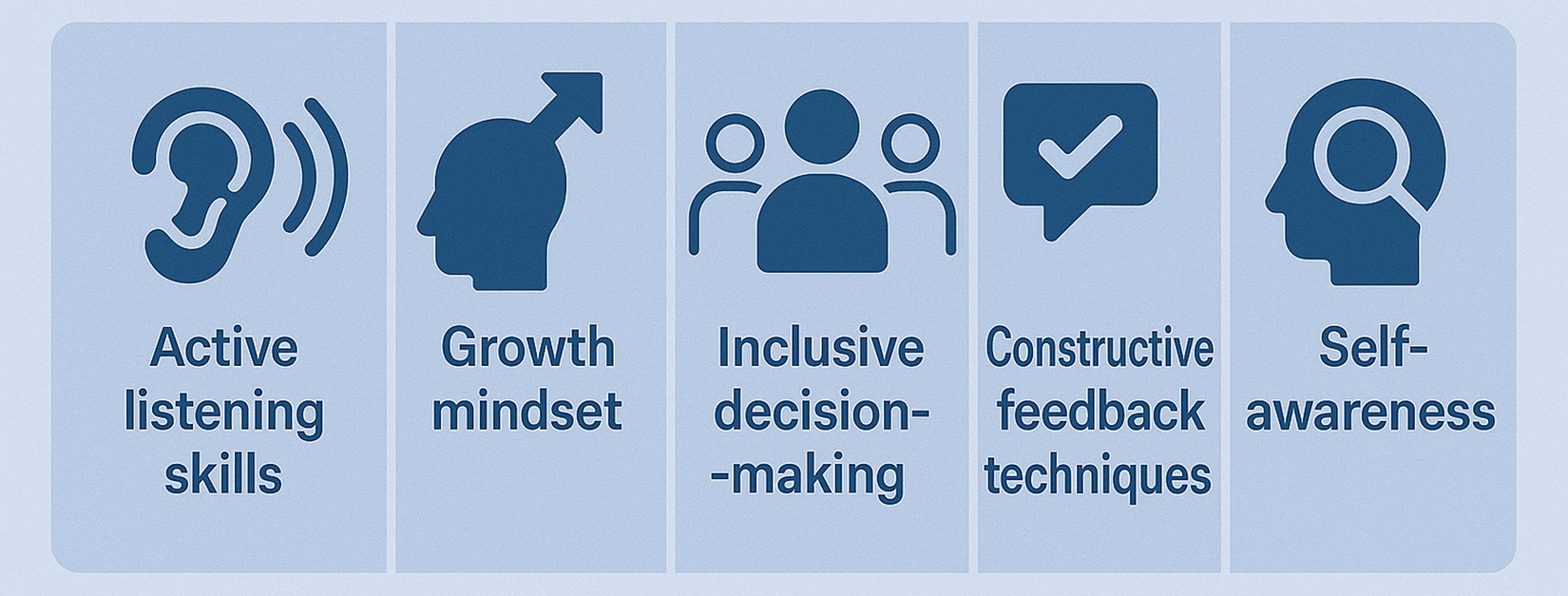
- Active listening skills – Paying attention to what is said (and unsaid).
- Growth mindset – Viewing mistakes as learning opportunities rather than failures.
- Inclusive decision-making – Ensuring all voices are heard before conclusions are drawn.
- Constructive feedback techniques – Framing criticism in a way that motivates improvement.
- Self-awareness – Understanding how one’s tone, body language, and reactions impact others.
When leaders embody these qualities, psychological safety becomes embedded in the team culture.
Measuring Psychological Safety
While psychological safety is a feeling, it can be measured through both qualitative and quantitative methods.
Common indicators include:
- Employee survey results on trust, respect, and willingness to speak up.
- Frequency of idea submissions and process improvement initiatives.
- Retention and engagement rates.
- Reduction in incident underreporting.
- Feedback frequency between employees and leaders.
Consultants often benchmark these metrics before and after interventions to demonstrate tangible improvement.
The Link Between Psychological Safety and Diversity
Diversity and inclusion initiatives often falter without psychological safety. Hiring diverse talent is only effective if individuals feel comfortable expressing their unique perspectives. A psychologically safe culture encourages people to bring their full selves to work enabling diversity of thought, creativity, and innovation.
Consultants help organisations integrate psychological safety into diversity strategies by promoting empathy, cross-cultural communication, and bias awareness.
How a Consultant Builds Trust Across an Organisation
Building trust takes time, consistency, and credibility.
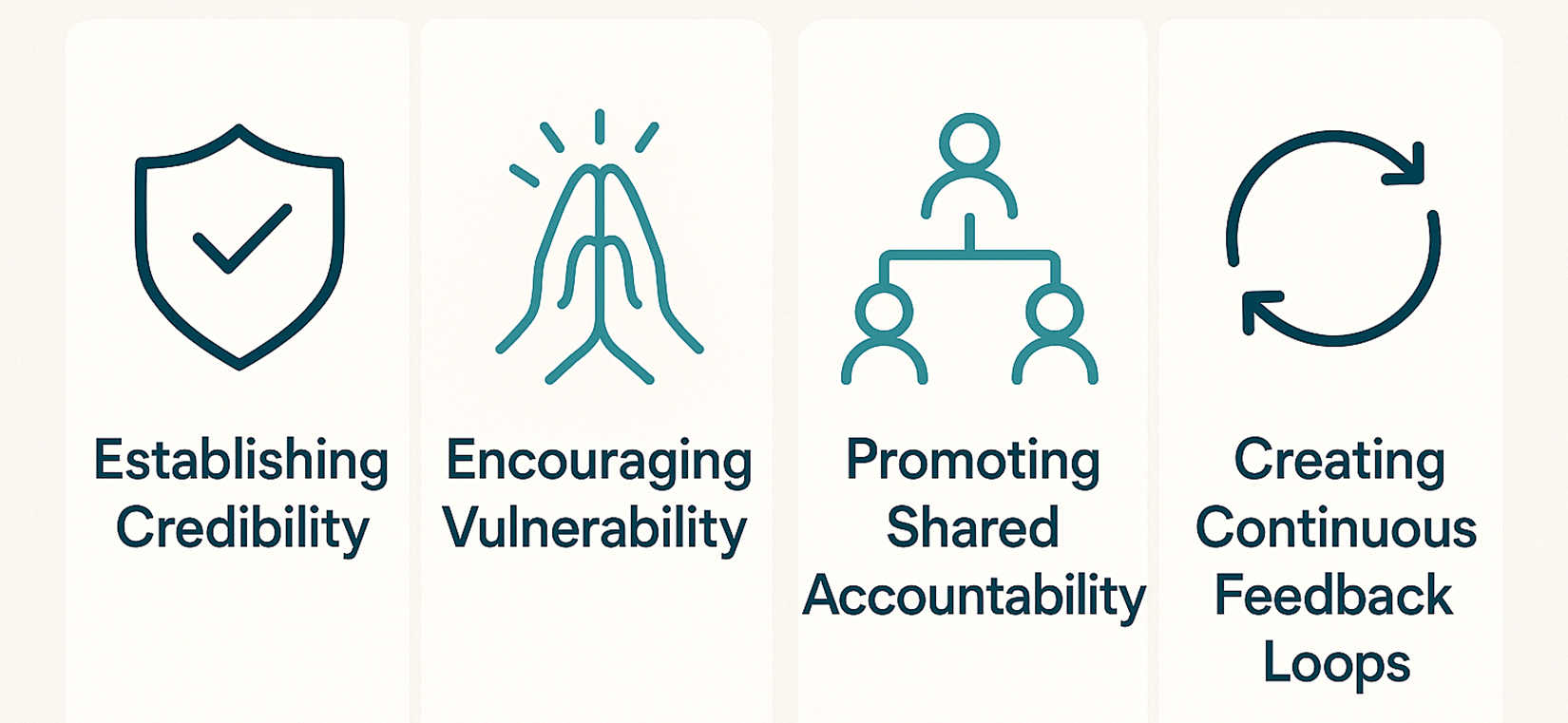
Effective consultants approach organisations holistically, recognising that psychological safety is influenced by both interpersonal behaviour and systemic structures.
1. Establishing Credibility
Consultants gain trust by demonstrating deep knowledge of workplace psychology, backed by research and practical experience. They create safe spaces where employees can share concerns without fear of repercussion.
2. Encouraging Vulnerability
They model vulnerability themselves admitting uncertainty or mistakes to show that transparency is not a weakness.
3. Promoting Shared Accountability
Rather than blaming individuals, consultants help teams view problems as shared challenges that require collective responsibility.
4. Creating Continuous Feedback Loops
Consultants establish feedback mechanisms regular debriefs, retrospectives, or listening sessions—that normalise open communication.
Case Study Example: Psychological Safety in Action
Consider a mid-sized engineering firm struggling with project delays, low morale, and high staff turnover. Employees feared raising concerns about unrealistic deadlines, leading to repeated design errors and rework.
A psychological safety consultant was engaged to conduct a comprehensive culture audit. Through surveys and interviews, the consultant discovered that project managers were unintentionally discouraging feedback by reacting defensively to problems.
Interventions included:
- Leadership workshops on active listening and emotional regulation.
- Team sessions establishing ground rules for constructive feedback.
- Regular safety huddles encouraging staff to discuss lessons learned without blame.
Within six months, the firm reported a 25% reduction in rework incidents, improved team satisfaction scores, and stronger collaboration across departments.
Psychological Safety and Organisational Change
During mergers, restructures, or rapid growth, uncertainty can heighten anxiety and silence voices. Psychological safety becomes even more critical during these transitions.
Consultants guide organisations through change by:
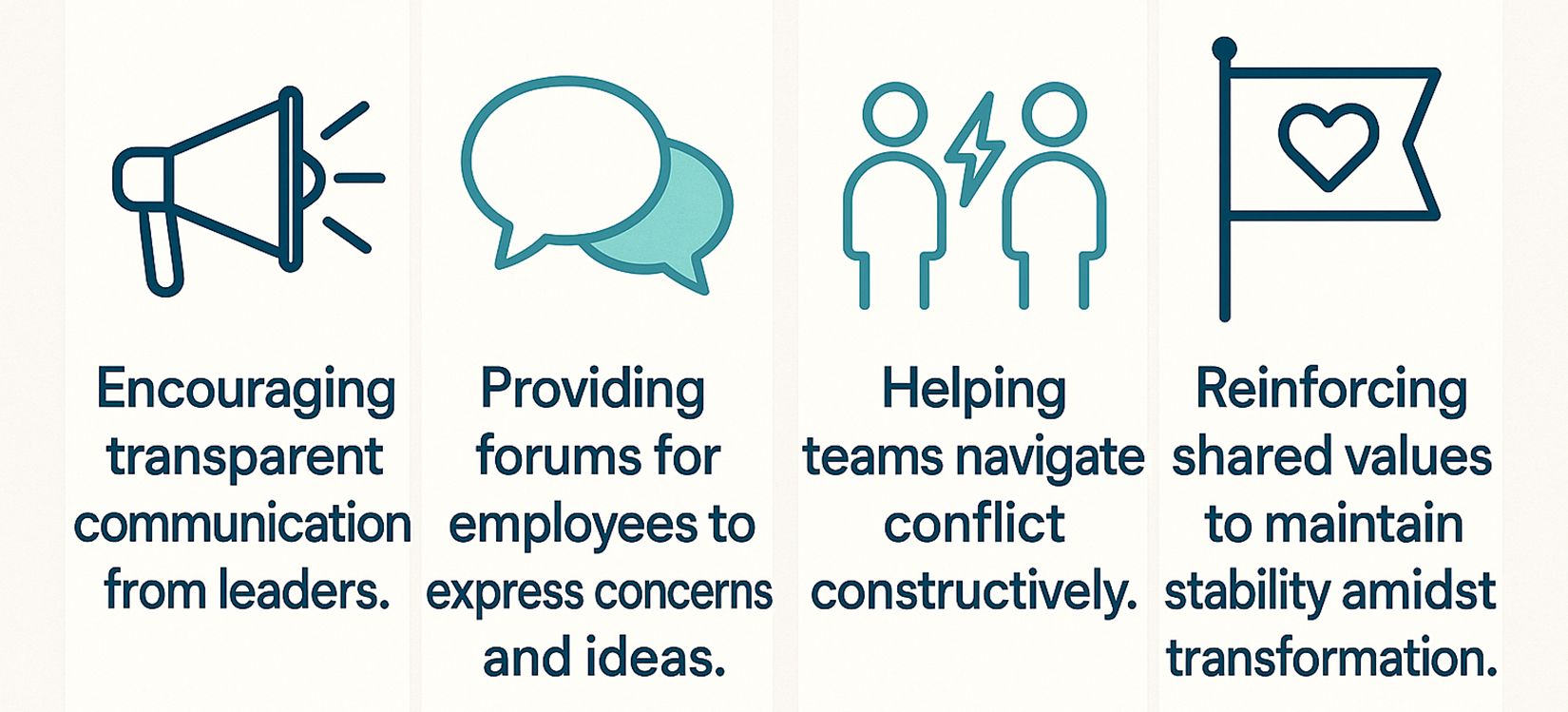
Integrating Psychological Safety with WHS and Wellbeing
In Australia, the introduction of psychosocial risk management requirements under WHS legislation has intensified the focus on psychological safety. Employers must now identify and manage psychosocial hazards such as bullying, workload stress, and poor communication.
A psychological safety consultant supports compliance by aligning cultural initiatives with WHS obligations. They help organisations assess psychosocial risks, implement control measures, and cultivate supportive leadership behaviours that reduce stress and improve wellbeing.
By embedding psychological safety into health and safety systems, businesses can move beyond reactive compliance toward proactive care for their people.
A psychological safety consultant supports compliance by aligning cultural initiatives with WHS obligations. They help organisations assess psychosocial risks, implement control measures, and cultivate supportive leadership behaviours that reduce stress and improve wellbeing.
By embedding psychological safety into health and safety systems, businesses can move beyond reactive compliance toward proactive care for their people.
Benefits of Engaging a Psychological Safety Consultant
Organisations that invest in psychological safety consultancy report wide-ranging benefits, including:

These benefits extend beyond financial performance they build resilient, human-centred organisations capable of thriving in uncertainty.
How to Choose the Right Consultant
Selecting the right professional is critical.

Consider the following when engaging a consultant:
- Qualifications – Look for backgrounds in organisational psychology, leadership coaching, or change management.
- Experience – Seek evidence of successful cultural transformation projects.
- Methodology – Ensure they use research-backed frameworks, not just motivational workshops.
- Alignment – Choose someone whose values align with your organisation’s mission and people strategy.
- Follow-up Support – Confirm they provide ongoing evaluation, not just a one-off session.
A good consultant acts as both facilitator and catalyst empowering your internal teams to sustain psychological safety long after the engagement concludes.
Creating a Sustainable Culture of Safety
Building psychological safety is not a quick fix. It requires long-term commitment and reinforcement at every organisational level. Successful companies embed it into daily routines: team check-ins, feedback loops, and performance reviews that recognise learning and curiosity.
Leadership must continually demonstrate humility, empathy, and openness. Teams must hold one another accountable for upholding respect and inclusion. And systems from hiring to reward structures must reflect the organisation’s values.
A consultant provides the roadmap, but sustained success depends on ongoing effort and consistency.
Conclusion
In an age defined by uncertainty, digital transformation, and constant change, organisations that thrive are those that empower their people to think, speak, and act with confidence. Psychological safety is the foundation of that empowerment.
By engaging a qualified psychological safety consultant, businesses gain expert insight into the invisible dynamics that shape communication, trust, and performance. These specialists help transform workplaces from environments of fear and compliance into cultures of curiosity, respect, and innovation.
Every conversation held without fear strengthens a team. Every leader who listens with empathy builds resilience. And every workplace that invests in psychological safety creates a future where people and performance flourish together.
Because the safest place to speak up should always be at work.
Related Content
Join Our Newsletter
Receive expert insights, safety updates, and the latest updates in our services and apps. Stay ahead of workplace safety, compliance, and operational efficiency delivered straight to your inbox.

.png)
